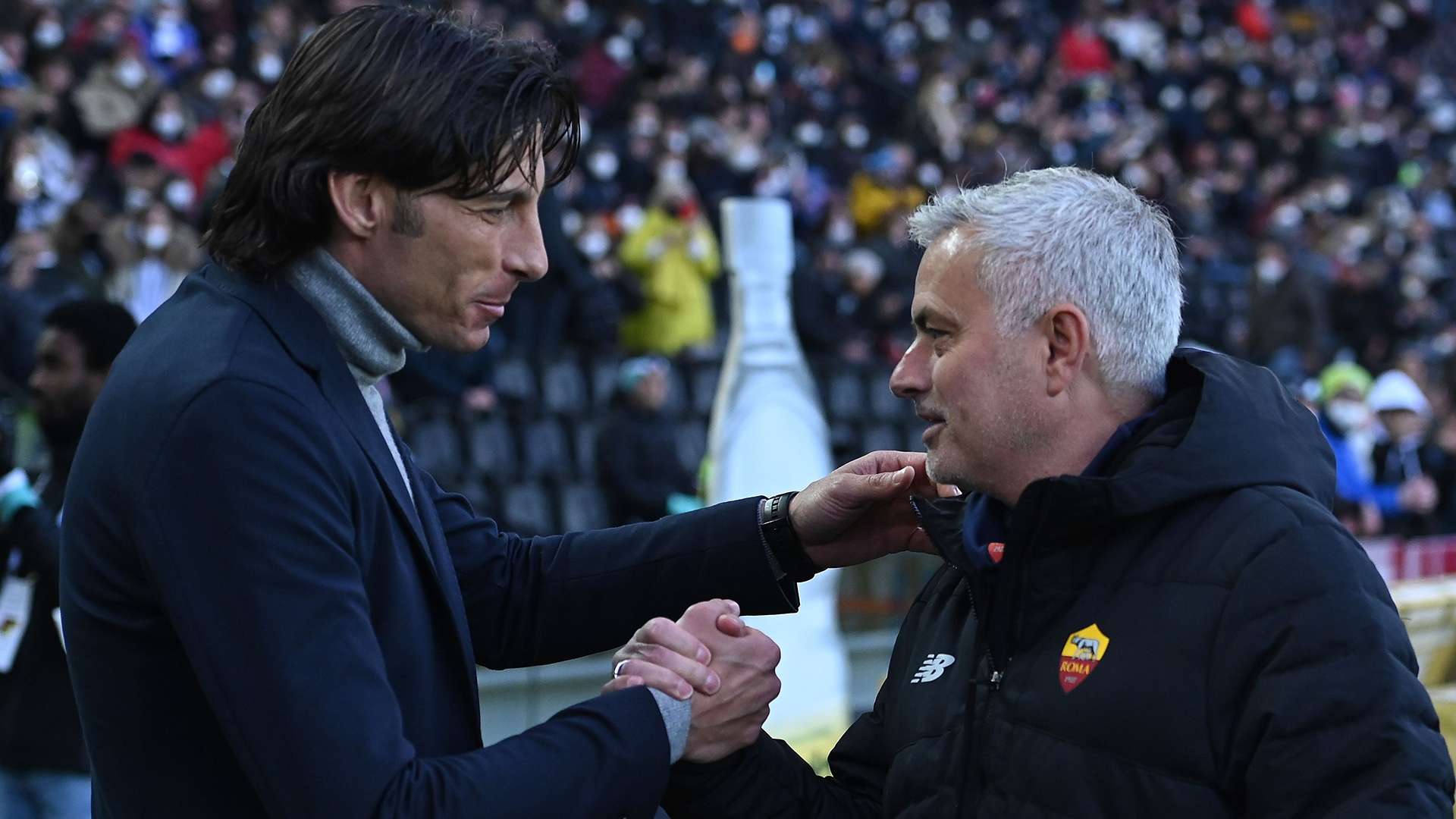Udinese coach Gabriele Cioffi is ever so slightly late for the interview.
Why? Lunch was delayed because a chat with Beto ran way longer than expected.
"Myself and Beto both know how much potential he has, and I want to get the very best out of him, so we ended up spending 45 minutes talking about things he can do better," Cioffi explains to GOAL.
"It wasn’t an argument at all – but a frank discussion between manager and player. It was effectively laying down a challenge.
"But, at the end, I said, 'Beto, come on, we have to go eat!' And he was like, 'No, let’s talk for two more minutes!'
"It was funny but this kind of attitude is nice; it makes my job easier. Usually, you have to push the player. But, in this instance, he’s pushing himself to improve.
“And that's great for me, because I have to win games and if you don't have the players behind you you're in trouble.
"As the saying goes, if you are a naked man walking on the road alone, you’re a mad man. But if you have 20 naked people behind you, you’re a guru!
"So, the role of a manager is to walk naked out in front and make people follow us! It’s not easy sometimes but you have to be brave."
It is a hell of a way to introduce oneself, but perfect preparation for what is to come, as a scheduled 15-minute interview turns into an hour-long chat.
The 46-year-old Cioffi is a charismatic character, blessed with a wicked sense of humour and the kind of enthusiasm that cannot help but put you in a good mood.
He is also open and honest, making it easy to see why players would react positively to his presence on both the training ground and the touchline.
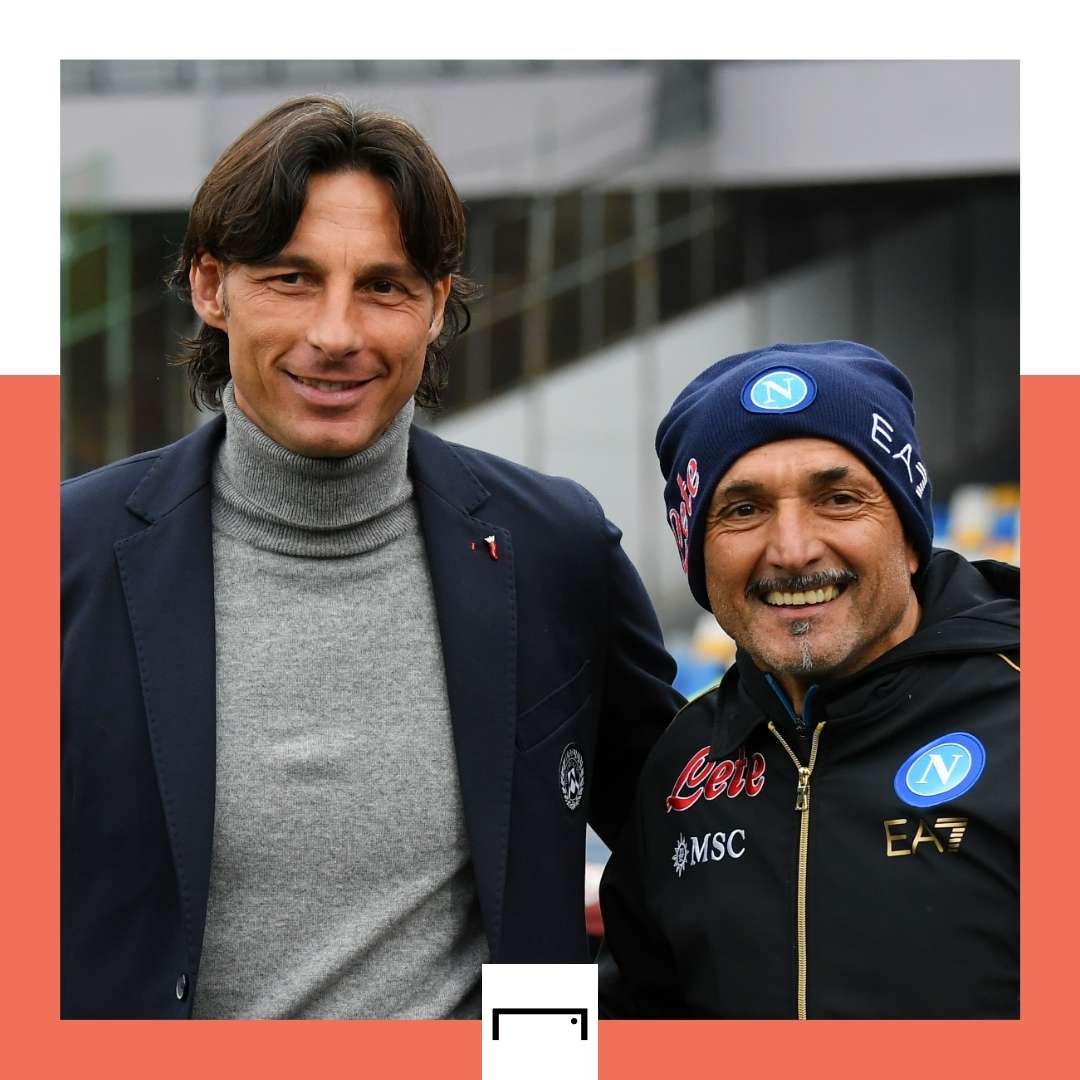 Getty
GettyHe is certainly brave, too; a man that loves accepting challenges as much as he enjoys issuing them.
How else to explain a peripatetic coaching journey that has already featured stints at Al-Jazira, Crawley Town and now, Udinese?
What is even more remarkable is that Cioffi feared his managerial career was over before it had really got going.
"I felt like a loser," he says of his Carpi exit.
Back in 2012, he had only just quit playing, but was revelling in a coaching role surprisingly bestowed upon him by the Modena club's then-sporting director, Cristiano Giuntoli, who now works for Napoli.
"I had amazing success because we were first in the league, the best offensive team, the best defensive team.
"But with nine games to go, we parted company. He was a young sporting director and I was a young coach..." Cioffi explains, his sense of regret obvious.
"I felt like my big opportunity had gone but, by luck, I had a former team-mate working in Australia, Diego Pellegrini, and he said, 'Gab, you did well, I think you have a lot of potential, I have to set up an academy, I need new ideas, do you want to fly over here and work with me on a project?'"
Cioffi uses the word 'luck' a lot to explain his rapid rise to top-flight coaching, but he is also quick to point out that "luck is the addition of preparation plus opportunity".
And he has certainly been ready, willing and able to take every opportunity that has come his way.
The Australian gamble paid off because it brought him to the attention of Gabriele Nani, "the man who convinced Roberto Baggio and Pep Guardiola to play for Brescia", as Cioffi points out.
Nani had little trouble using the powers of persuasion to lure Cioffi to the United Arab Emirates. The opportunity to work alongside Henrik ten Cate at Al-Jazira in 2015 was all the incentive he needed.
Again, though, he did not want to just sit silently in the corner taking notes off a man who had worked at Barcelona. He wanted to test himself, to make his presence felt, to bounce ideas off Ten Cate.
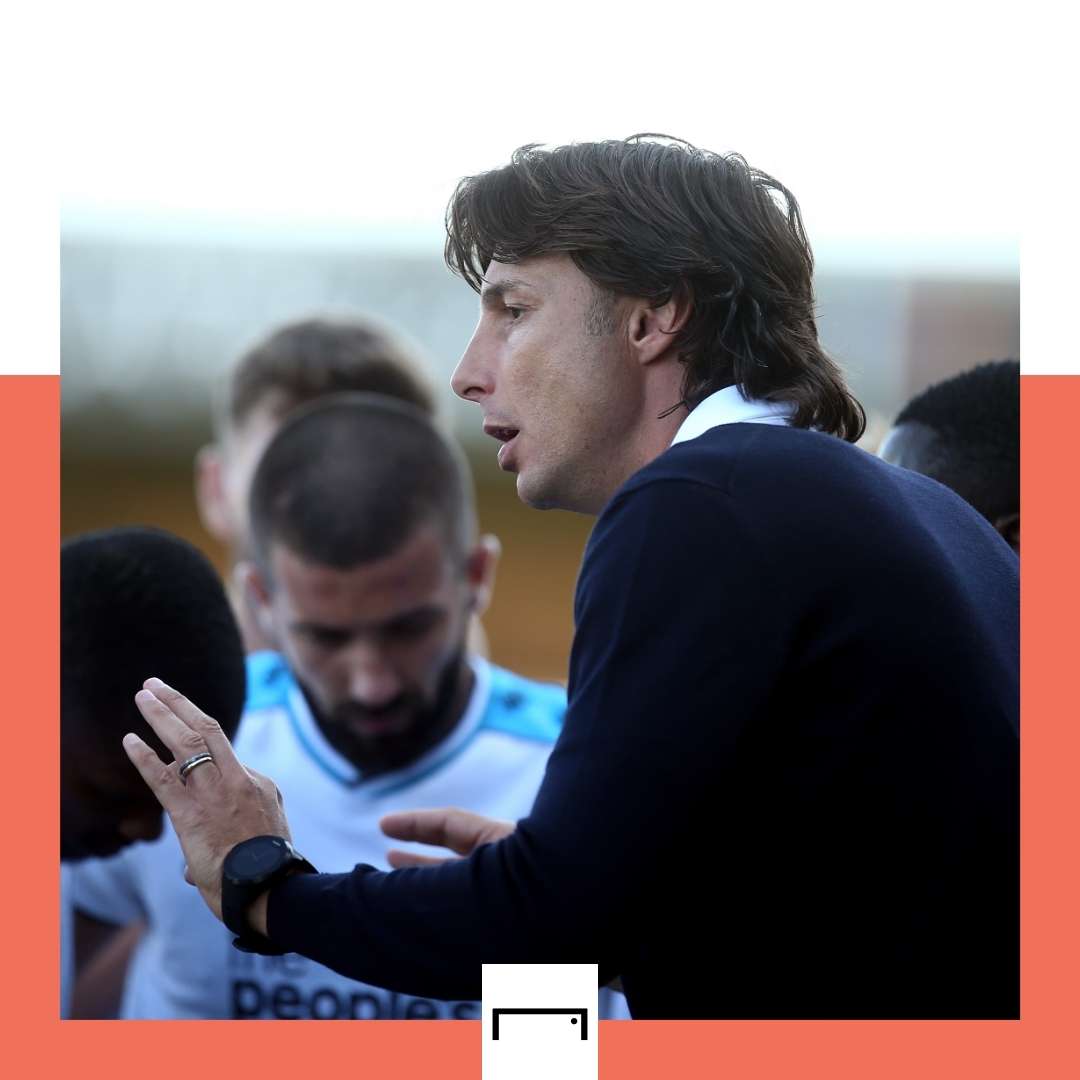 Getty
Getty"I’m a strong character, and he’s a strong character," he explains, "and we had several head-to-heads, but always in a positive way, man to man, never with any bitterness.
"When the argument was over, it was over. And together we won the President’s Cup, and we got back into the Asian Champions League after 12 years away.
"He’s a top, top coach and what I learned from him was how to be a manager because he has a strong personality and has a clear idea of football. He is willing to die for his ideas, and I think that was the biggest takeaway."
It was clear by that stage that Cioffi wanted a top job, but he would have to bid his time.
Through Nani, he also met Gianfranco Zola, who subsequently invited the Florence native to join him at Birmingham City in 2016. That experience solidified Cioffi's interest in one day taking a manager's job in England.
Still, it still came as a surprise when he accepted the job at Crawley Town in 2018. After all, he was back working as an assistant coach in UAE, earning good money at Al-Dhafra.
Again, though, Cioffi's love of a good challenge proved decisive.
"One day, I received a phone call from Erdem Konyar, the CEO of Crawley Town, a tiny club in the fourth division of English football, while Al-Dhafra was in the Asian Champions League," he says.
"So, I was wondering why they were calling me. What do they want from me?
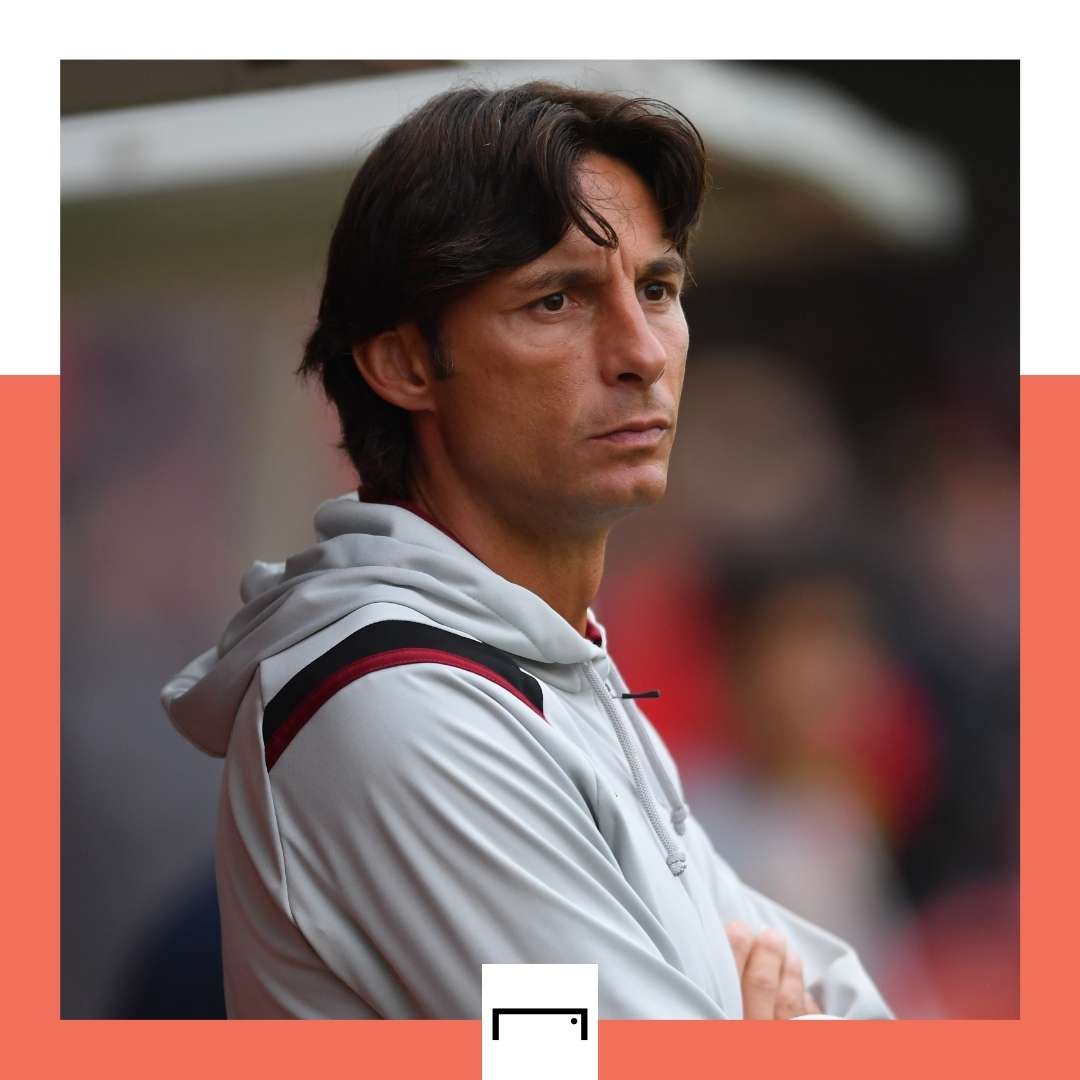 Getty
Getty“But at the end of the call, I got the feeling that he was throwing down a challenge to me. And I just thought, 'Okay, let’s see. We don’t have money, we don’t have a training ground, the club hasn’t been well run in recent years, we need to save the club by keeping it in League Two...'
"And I said, okay, I’m flying over!
"I spent 19 amazing months there. I was very, very sorry when we had to end our working relationship.
"Because in our two years there we created a training ground, we equalled our best run in both the League Cup – beating a Premier League club for the first time – and in the FA Cup. So, we made a lot of history together.
"And I had a great human relationship with all of the people working there. So, when I decided to quit, for a lot of off-the-field reasons, I was really crushed. It was tough to say goodbye.
“But when I think of Crawley Town, I smile. Because it was, day by day, a great life, a great experience. We brought back hope to the club.
"We had a lot of projects with no money. Because with no money, it’s easy. You buy whatever you want. But we had to do what we did without spending anything. We had to be creative and inventive.”
Such an approach obviously helps explain why Luca Gotti decided in 2020 that Cioffi would be an ideal addition to his coaching team.
As Cioffi says, there is a reason why Udinese have managed to remain in Serie A for the past 28 years: resourcefulness.
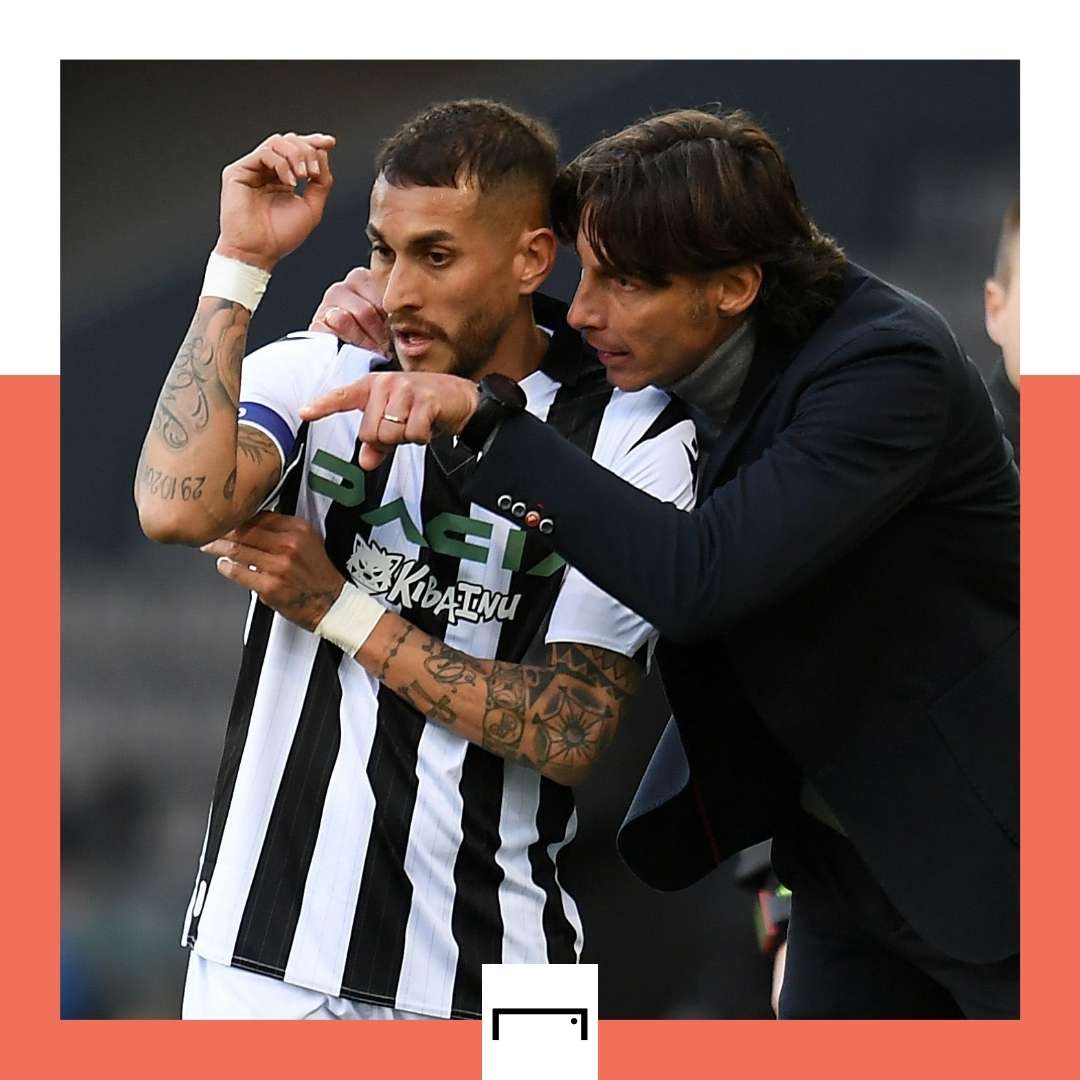 Getty
GettyThe club boasts an excellent scouting network and has managed to maintain its top-flight status by unearthing hidden gems and selling them for a small fortune.
With Gotti in charge, and Cioffi at his side, Udinese finished 14th at the end of an inconsistent 2020-21 campaign, but they achieved one very notable result: a 3-1 victory at Lazio.
Cioffi had been on bench at the Stadio Olimpico that night, filling in for Gotti, who had been forced to self-isolate after contracting Covid-19.
Cioffi completely credited Udinese's first away win over Lazio in six years to his boss, but his role in the historic victory did not go unnoticed by his employers.
Indeed, when Gotti was dismissed last December for a poor run of results, they asked his assistant to take over on an interim basis.
"When they gave me the job, I asked why," Cioffi says. "And they told me, ‘Because you took charge of one game last season, against Lazio, and you won. So, we want to give you this chance.
"'We like the way you work. You’re passionate and we think the team needs someone like you.'"
The first thing Cioffi did was speak to the man he would be replacing at the helm.
"Luca is a gentleman and he understood the momentum of the situation," he says. "I explained why I was going to take the job. Then, I went back to the office and signed the contract.
"But it was all such a big surprise for me. It was like something that fell from heaven."
Of course, there is no guarantee that Cioffi will be given the job on a full-time basis, but he's done himself no harm at all by guaranteeing the club a comfortable mid-table finish, having twice held AC Milan to a draw in 2021-22.
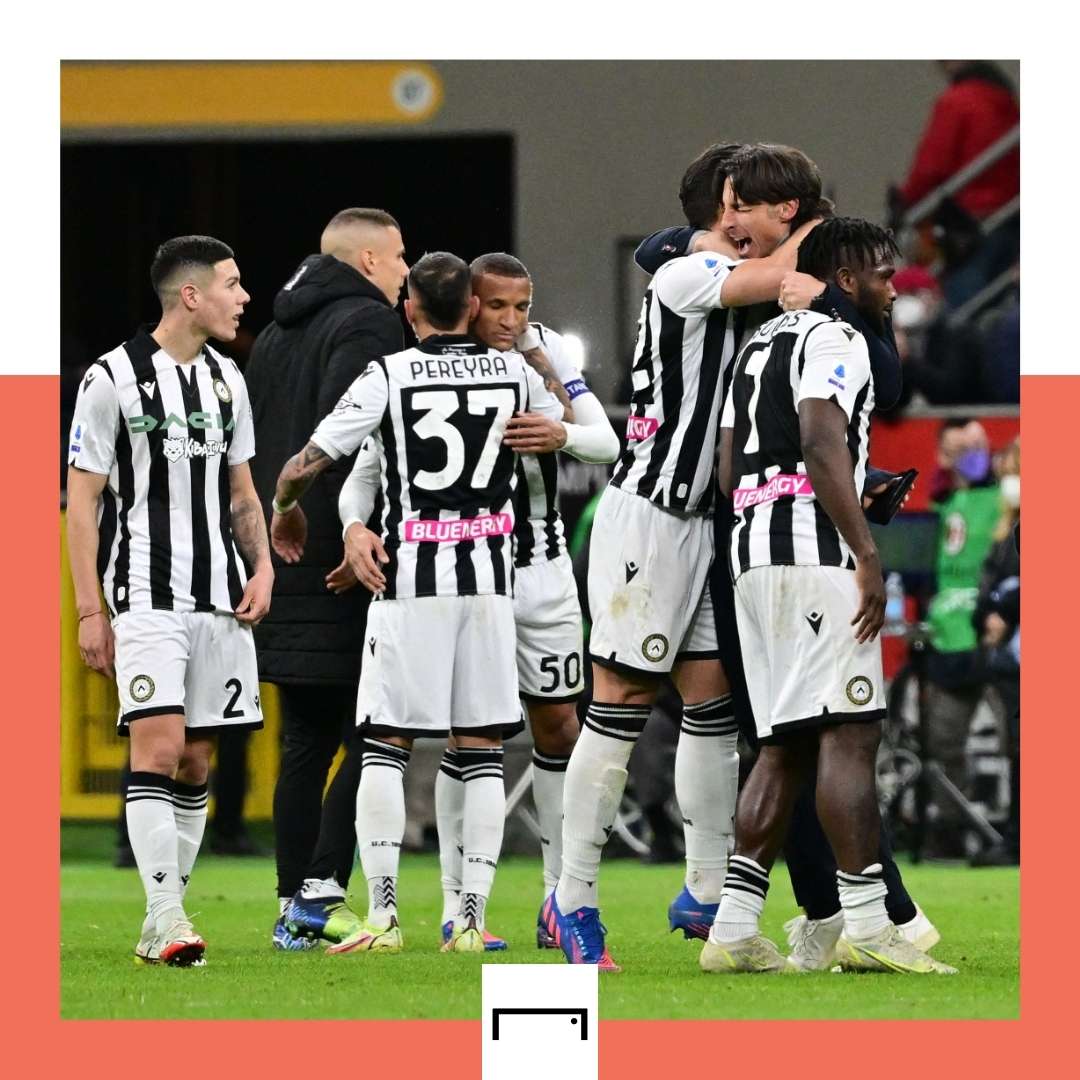 Getty
GettyCioffi, though, is taking nothing for granted. He may be relatively young for a coach, but he is already more than familiar with the precarious nature of the profession.
Besides, whatever happens, he intends to keep coaching. He might not be a guru but he certainly feels like he has finally found his true calling.
"The life of a manager is up and down all the time," he says. "Every defeat is like the end of the world but then you restart a new life the following week.
"You pick up plenty of scars in this game. It hurts at times. But you get used to the pain, and the knowledge that you could be sacked at any moment.
"But you know what, I couldn’t survive without this adrenaline. Because you get addicted.
"I did my job as an assistant coach very thoroughly. I respected the role, I took it very seriously.
"But I knew that while my shoe size was 46, I was wearing a pair of 39s. It wasn’t the right fit. Now, though, as a head coach, I’m comfortable.
“Of course, maybe I'll only manage for the next three games; or maybe I’ll manage for the next 30 years. I don’t know.
"But I do know that I’m where I want to be. Whatever happens next, I know that I want to continue as a head coach."
